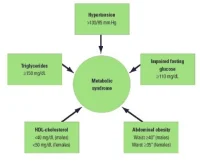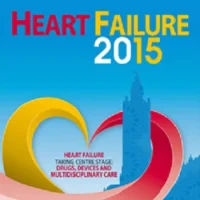One in five people are expected to develop heart failure in developed countries, a disease with no cure but which is largely preventable. The Heart Failure Association (HFA) of the European Society of Cardiology (ESC) is highlighting the need for greater awareness of heart failure symptoms. Across Europe, countries are holding Heart Failure Awareness Day on 8, 9 and 10 May.
Professor Andrew L Clark, chair of the British Society for Heart Failure (BSH), said: “For patients with untreated heart failure it feels as if every breath in and out is through a narrow straw. Their prognosis is worse than for most forms of cancer. But treatment at least doubles life expectancy and many cases could be prevented if patients knew what do to.”
Heart failure affects nearly 26 million people across the globe. It can have a negative impact on a patient’s quality of life, often leaving them scared, anxious and depressed. Patients with breathlessness and fatigue find it difficult to work, travel and socialise. Approximately 45% of patients admitted to hospital with heart failure die within 1 year of admission and the majority die within 5 years.
This is unfortunate since most types of heart failure are preventable. If patients adopt a healthy lifestyle, the risk can diminish. Physical activity, a healthy diet and non-smoking can lower the likelihood of obesity, diabetes and high blood pressure.
In addition, if people could be taught to recognise the symptoms and seek immediate medical attention, premature deaths could be prevented. Public awareness of these symptoms remains dangerously low. Most patients do not contact a doctor for hours or even days because they do not think the symptoms are heart related. They dismiss them as a normal part of ageing or as being not that serious.
Some of the major warning signs of heart failure include:
• Increasing swelling of the legs, starting with ankles and working upward
• Getting more breathless, particularly lying flat or waking you at night.
Heart Failure Awareness Day is celebrating its 5th anniversary in more than 25 ESC member countries. The goal is to raise awareness amongst politicians, policy makers, patients and healthcare professionals of the impact of heart failure and the need for equal access to specialist services. Professor Clark said: “Most patients don't get to see a heart failure specialist. This needs to change because when patients are diagnosed quickly and given the best treatment, their chances of survival and a good quality of life dramatically improve.”
Source: ESC
Image Credit: Pixabay










